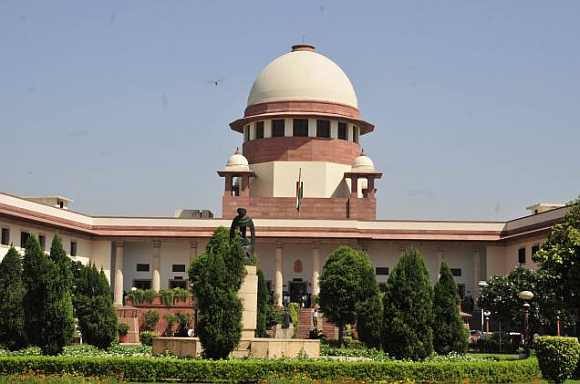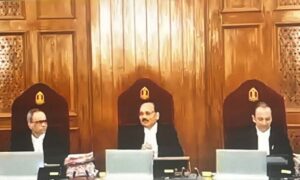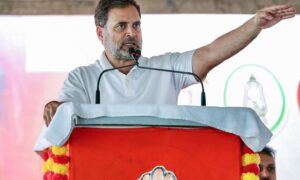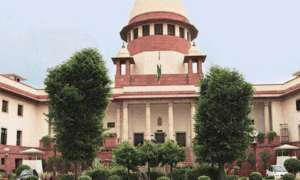
The Supreme Court is scheduled to deliver its much anticipated judgement on October 17 on pleas seeking legal validation for same-sex marriage.
A five-judge constitution bench headed by Chief Justice D Y Chandrachud had on May 11 reserved its verdict on the pleas after a marathon hearing of 10 days. The other members of the bench are Justices Sanjay Kishan Kaul, S Ravindra Bhat, Hima Kohli and P S Narasimha.
The judgement will be delivered on Tuesday and accordingly, the information will be updated on the apex court website, sources said, reported PTI .
The top court heard 20 petitions – filed by same-sex couples, transgender people and queer activists – which challenged the provisions of the Special Marriage Act 1954, Hindu Marriage Act 1955, and the Foreign Marriage Act 1969 which do not recognise same-sex marriages.
The apex court, however, has said it will confine the issue to the Special Marriage Act and not tinker with personal laws.
The demand for marriage equality gained ground soon after the Supreme Court decriminalised homosexuality in a historic judgement in September, 2018. The top court ruled that consensual adult gay sex was not a crime, saying sexual orientation was natural and people had no control over it.
Several petitions were then filed in high courts and in the apex court seeking the solemnisation of gay marriages. On 13 March 2023, the case was transferred from a three-judge bench to a larger five due to the substantial legal questions raised by the petitions regarding the interpretation of the Constitution.
The Centre, which has opposed such a legislation, has argued that only Parliament should be allowed to debate on the matter, after observing in an affidavit that the petitions before the court “reflect urban elitist views for the purpose of social acceptance”.
To this, Chief Justice Chandrachud orally observed that “there is no data coming out of the government that this (same-sex marriage) is urban (concept) or something”.
The government relented somewhat later and said it would constitute a committee to examine whether certain legal rights could be granted to same-sex couples, but stopped short of recognising gay marriage.
The apex court called this a “very fair suggestion”. It was a small beginning, the court added, but an “incremental” and “substantial one”.
The petitioners have submitted that existing marriage laws in their present form infringe on a person’s fundamental right against discrimination, which is guaranteed to them under Articles 14 and 15.
The laws also violate their right to freedom of expression as well as right to privacy, which was declared a fundamental right following the Puttaswamy judgment in 2018, they have said.
[the_ad id=”55724″]


















